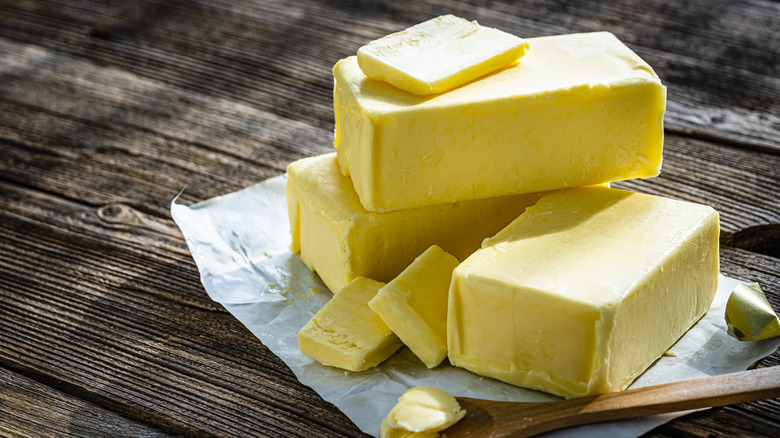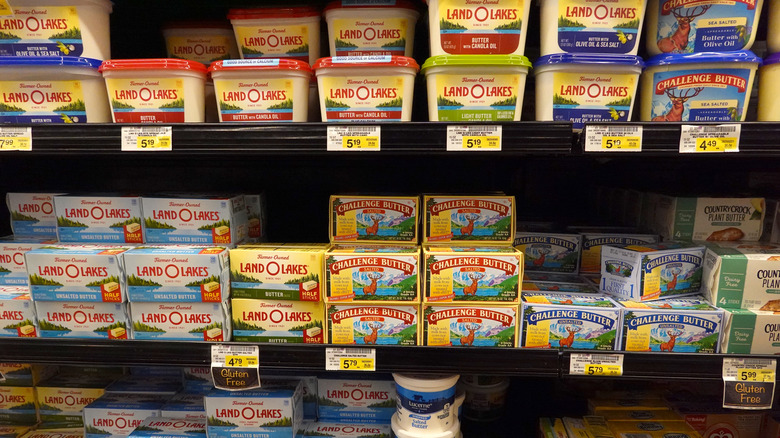The Best Type Of Butter To Use When Browning
If you've tasted browned butter, you know that this simple technique is more than a trend. The ingredient brings a toasty aroma and irresistible depth of flavor to any dish. For this reason, it's a popular addition to many recipes, from savory pasta to decadent cookies. Taking the extra time to brown your butter when cooking is well worth the effort, but if you're going to go through the trouble, you'll want to be sure you're doing it right. While good technique is always important in the kitchen, much of the success of browning butter comes down to the type of butter you are using.
For the best results when browning, you'll want to use high-quality butter because it has more fat. Browned butter is the result of butter undergoing the Maillard reaction. You've probably heard of the term before — this is the same chemical reaction that gives your grilled meat its signature sear and your caramelized onions their mouthwatering smell. When your butter reaches the temperature required for browning, its components undergo a process that essentially caramelizes the solids (sugar and fat) in the pan. This occurrence is the secret to making the butter turn that lovely golden-brown color and gives it its signature scent and toffee-like flavor.
Recommendations for which type of butter to use
How do you go about selecting a high-quality butter? A good starting point is to look for European or European-style brands. The average European butter contains at least 82% fat, whereas the American-style counterpart must contain only 80%. This higher percentage of fat means that the butter is softer, has a deeper flavor, and will even melt more quickly. Thankfully, there is no need to visit a specialty shop to get your hands on this type of butter. Many kinds are available at national grocery stores, so keep an eye out for convenient brands like Plugrá, Kerrygold, and Lurpak.
No matter which brand of butter you choose, it is always recommended that you reach for the unsalted option. This way, your recipe remains a blank slate that you can more easily season to your preferred level. If the perfect butter isn't available, don't let that stop you. Browning any kind of butter will still add another layer of complexity to your dish and that alone is something you can always celebrate.

